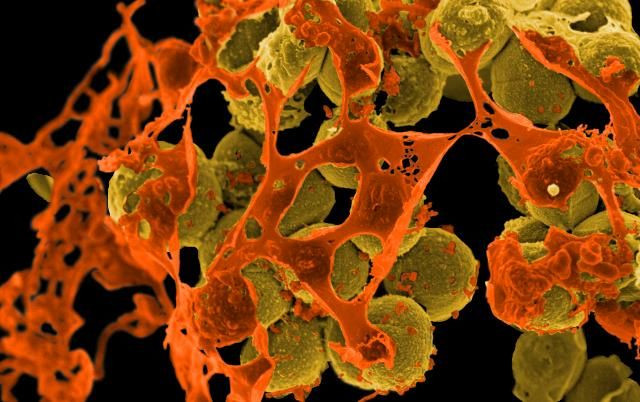Deadly 'Superbug' Found in Water Treatment Plants

Researchers from the University of Maryland and the University of Nebraska Medical Center have found that at least four water treatment plants in the United States contain superbugs, the methicillin-resistant Staphylococcus aureus and the methicillin-susceptible Staphylococcus aureus. The concern is that the plants are putting sewage workers at risk for contracting the bacteria, and that plants that do not treat water with chlorine may be leaving the most lethal strains.
MRSA, which are resistant to several forms of the most common antibiotics, has been an issue in hospitals. To make matters worse, cases of the bacteria have been on the rise outside of clinical settings. Up until now, though, researchers had been unable to pinpoint exactly where people were picking up the disease. The researchers suspected that they may have received them from water treatment facilities because people who have the bacteria in their system shed it from their noses, skin, and feces. But research on the matter in Sweden had turned it up in water treatment plants as well.
The four treatment plants in the Mid-Atlantic and the Midwest because their treated effluent, wastewater with solids and some other impure substances, is used to irrigate and fertilize fields. The researchers wanted to discover whether MRSA could be spreading in that manner.
The researchers found that 83 percent of the sewage in the plant was infected with the bacteria, and that 93 percent of MRSA was resistant to two or more antibiotics. But, as the treatment process continued, the number of bacteria declined. Only one plant had MRSA still alive at the end of the process; this one did not regularly chlorinate the water at their facility.
Rachel E. Rosenberg Goldstein and her colleagues write, "Our findings raise potential public health concerns for wastewater treatment plant workers and individuals exposed to reclaimed wastewater. Because of increasing use of reclaimed wastewater, further study is needed to evaluate the risk of exposure to antibiotic-resistant bacteria in treated wastewater."
The study was published in the journal Environmental Health Perspectives.



























